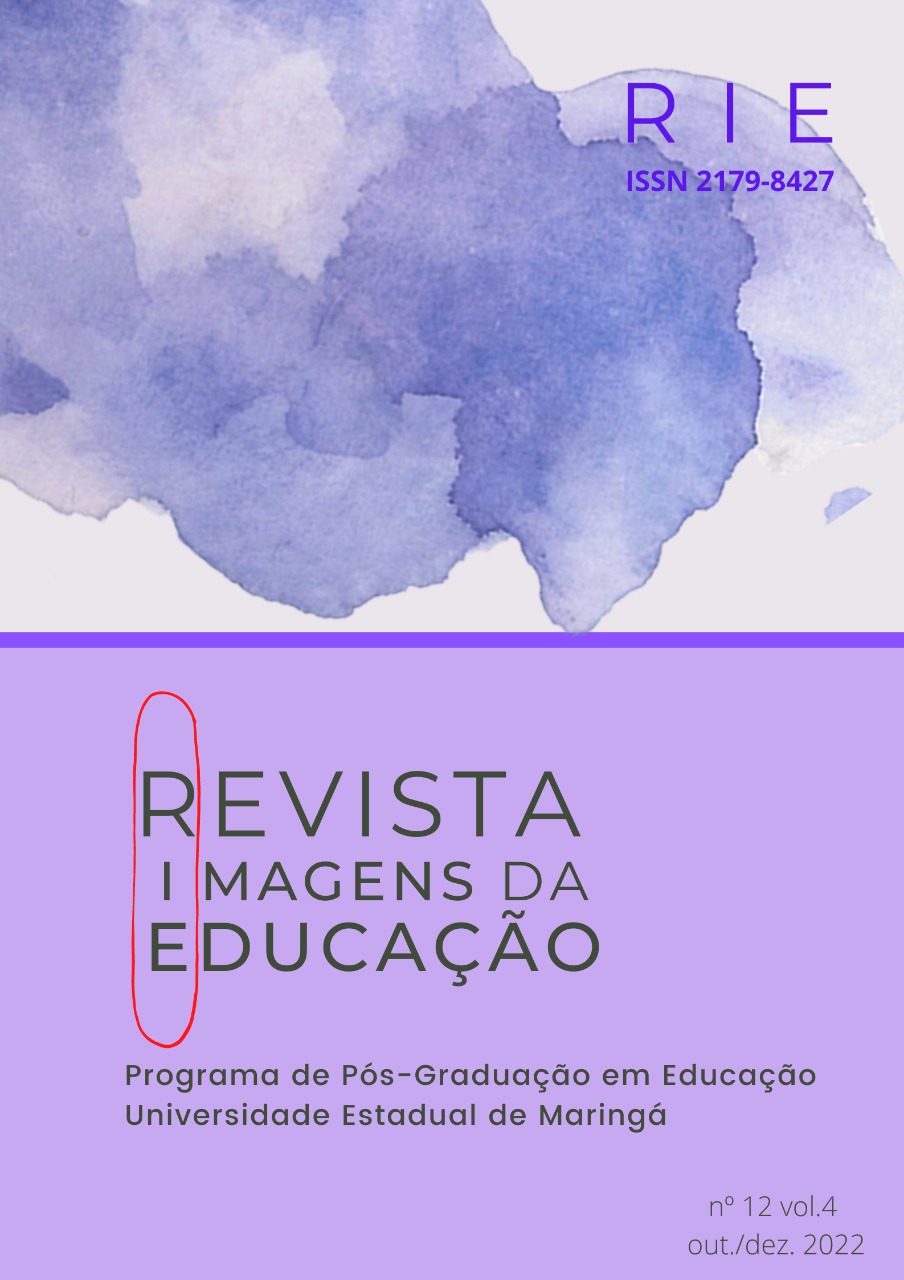THE IMPORTANCE OF THE IMPLEMENTATION OF DEMOCRATIC MANAGEMENT AND EDUCATIONAL PUBLIC POLICIES
Abstract
This article aims to reflect on educational management as a guiding principle for the implementation of democratic management and educational public policies in schools. Education is an unfolding of politics and its concept, in capitalist society, is characterized as a process by which the individual adapts to the demands and needs of the capitalist mode of production, being trained to perform his functions in a hierarchy that divides the leaders from the directed. In this paper, the dialectical methodology was used with the conviction that it is sustained by not excluding any data or knowledge produced, but incorporating and overcoming them in a more comprehensive synthesis. Initially, the concept of democracy, the construction of democratic management and the conceptions of educational policies are addressed. Thus, it is concluded that it is through the politicization and instrumentalization of the community in general that it is possible to replace the spontaneous acceptance of the facts by a conscious direction and participation from a coherent, critical, renewed and that is in favor of transformation.
Downloads
References
BORDIGNON, Genuíno. (2009). Gestão da educação no município: sistema, conselho e plano. São Paulo: Instituto Paulo Freire.
BRASIL. Presidência da República. (1988). Constituição da República Federativa do Brasil. Brasília, DF: Senado Federal.
FERREIRA, Naura Syria Carapeto. (2011). Gestão democrática na formação do profissional da educação: a imprescindibilidade de uma concepção. In: FERREIRA, Naura Syria Carapeto (Org.). Políticas públicas e gestão da educação: polêmicas, fundamentos e análises. Brasília, DF: Liber Livro, p. 153-171.
FERREIRA, Naura Syria Carapeto.; SCHLESENER, Anita Helena. (2007). A gestão democrática da educação e a formação do senso comum. In: SCHLESENER, Anita Helena; PANSARDI, Marcos Vinicius. (Orgs.). Políticas públicas e gestão da educação. Curitiba: UTP, p. 101-118.
FORTUNATO, Sarita. (2007). A gestão da educação em Gramsci: um olhar democrático a partir do trabalho nos conselhos de fábrica. In: SCHLESENER, Anita Helena; PANSARDI, Marcos Vinicius. (Orgs.). Políticas públicas e gestão da educação. Curitiba: UTP,.
FRIGOTTO, Gaudêncio. (2009). Política e gestão educacional na contemporaneidade. In: FERREIRA, Eliza Bartolozzi; OLIVEIRA, Dalila Andrade de Oliveira (Orgs.). Crise da escola e políticas educativas. Belo Horizonte: Autêntica, p. 65 -80.
GANZELI, Pedro. (2000). O processo de construção da gestão escolar no município de Campinas: 1983-1996 (Tese de Doutorado). Universidade Estadual de Campinas, Campinas.
GRAMSCI, Antonio. (2004). Cadernos do Cárcere. Tradução de Carlos Nelson Coutinho. 3. ed. Rio de Janeiro: Civilização Brasileira, v. 1-6.
KOPNIN, Pavel Vassílyevitch. (1978). A dialética como lógica e teoria do conhecimento. Rio de Janeiro: Civilização Brasileira.
LENIN, Vladmir Ilich. (2015). As tarefas revolucionárias da juventude. São Paulo: Expressão Popular.
LIBÂNEO, José Carlos. (2009). Educação escolar: políticas, estrutura e organização. São Paulo: Cortez.
LOURENÇO FILHO, Manoel Bomfim. (1976). Organização e administração escolar: curso básico. São Paulo: Melhoramentos.
MARX. Karl. (1845). Teses sobre Feuerbach.
MENDONÇA, Erasto Fortes. (2000). A regra e o jogo: democracia e patrimonialismo na educação brasileira. Campinas: LaPPlanE/FE/Unicamp.
OLIVEIRA, Ana Cristina Prado de. (2015). As relações entre Direção, Liderança e Clima Escolar em escolas municipais do Rio de Janeiro (Tese de Doutorado). Pontifícia Universidade Católica do rio de Janeiro, Rio de Janeiro.
PARO, Vitor Henrique. (1986). Administração Escolar: uma introdução crítica. São Paulo: Cortez.
SCHLESENER, Anita. (2011). Gestão democrática e formação dos conselhos escolares. In: FERREIRA, Naura Syria Carapeto. (Org.). Políticas públicas e gestão da educação: polêmicas, fundamentos e análises. Brasília, DF: Liber Livro, p. 173-185.
SILVA, Sidney Reinaldo. (2010). Democracia, estado e educação: uma contraposição entre tendências. RBPAE, Porto Alegre, v. 26, n. 1, p. 31-54, jan./abr.
SOUZA, Ângelo Ricardo. (2007). Perfil da gestão escolar no Brasil (Tese de Doutorado). Pontifícia Universidade Católica de São Paulo. São Paulo.
TAVARES, Tais Moura. (2004). Gestão pública do sistema de ensino no Paraná (1995-2002) (Tese de Doutorado). Pontifícia Universidade Católica de São Paulo, São Paulo.
VIEIRA PINTO, Álvaro. (1979). Teoria da Cultura. IN: VIEIRA PINTO, Álvaro. Ciência e existência: problemas filosóficos da pesquisa científica. Rio de Janeiro: Paz e Terra.
WEBER, Max. (2004). Economia e Sociedade – fundamentos da sociologia. V.2. Brasília - DF: editora UNB.
WEFFORT, Francisco.(1992). Qual democracia? São Paulo: Companhia das Letras.
Copyright (c) 2022 Imagens da Educação

This work is licensed under a Creative Commons Attribution-NonCommercial-NoDerivatives 4.0 International License.
DECLARATION OF ORIGINALITY AND CESSATION OF COPYRIGHT
I Declare that current article is original and has not been submitted for publication, in part or in whole, to any other national or international journal. I also declare that once published in the Imagens da Educação, a publication of the IES (UEM, UEL, UFSM, Univali, Unioeste and UEPG), it will not be submitted by me or by any co-author to any other journal. In my name and in the name of co-authors, I shall cede the copyright of the above mentioned article to the Universidade Estadual de Maringá and I declare that I know that the non-observance of this norm may make me liable for the penalties contemplated in the Law for the Protection of Authors' Rights (Act 9609 of the 19th February 1998).















1.png)

